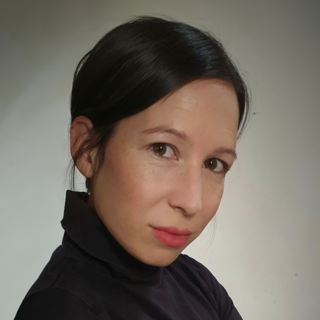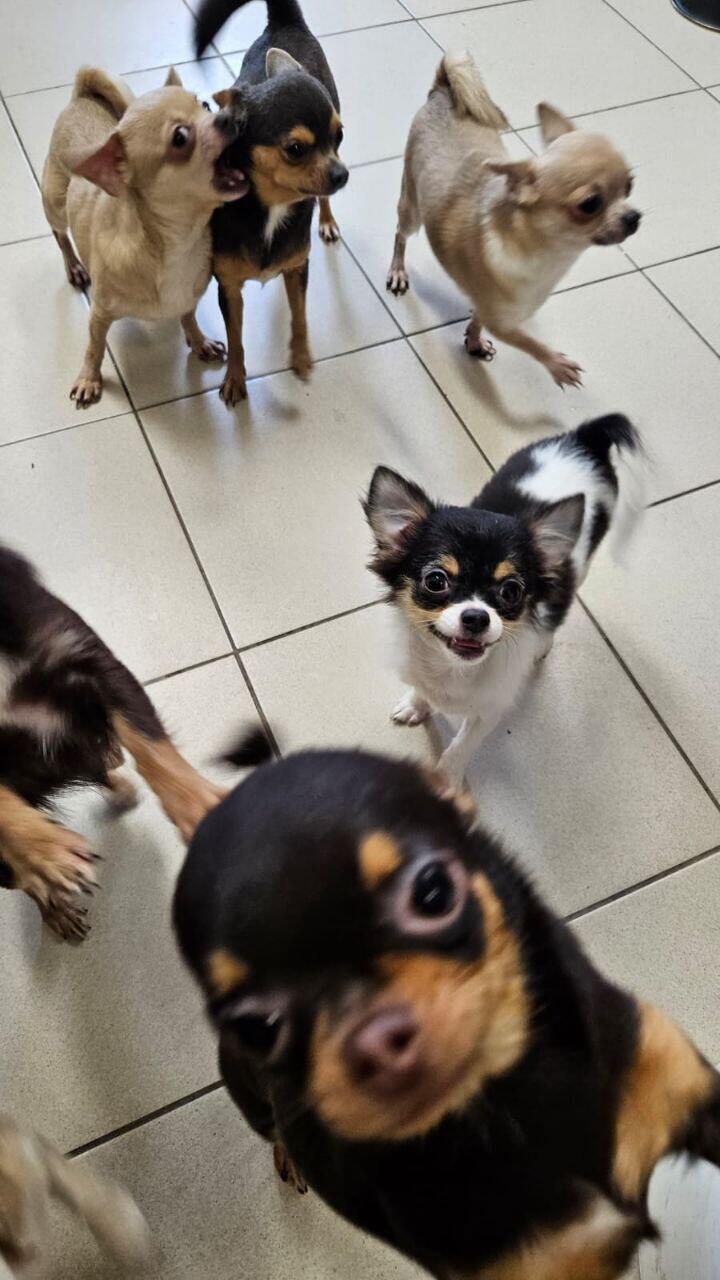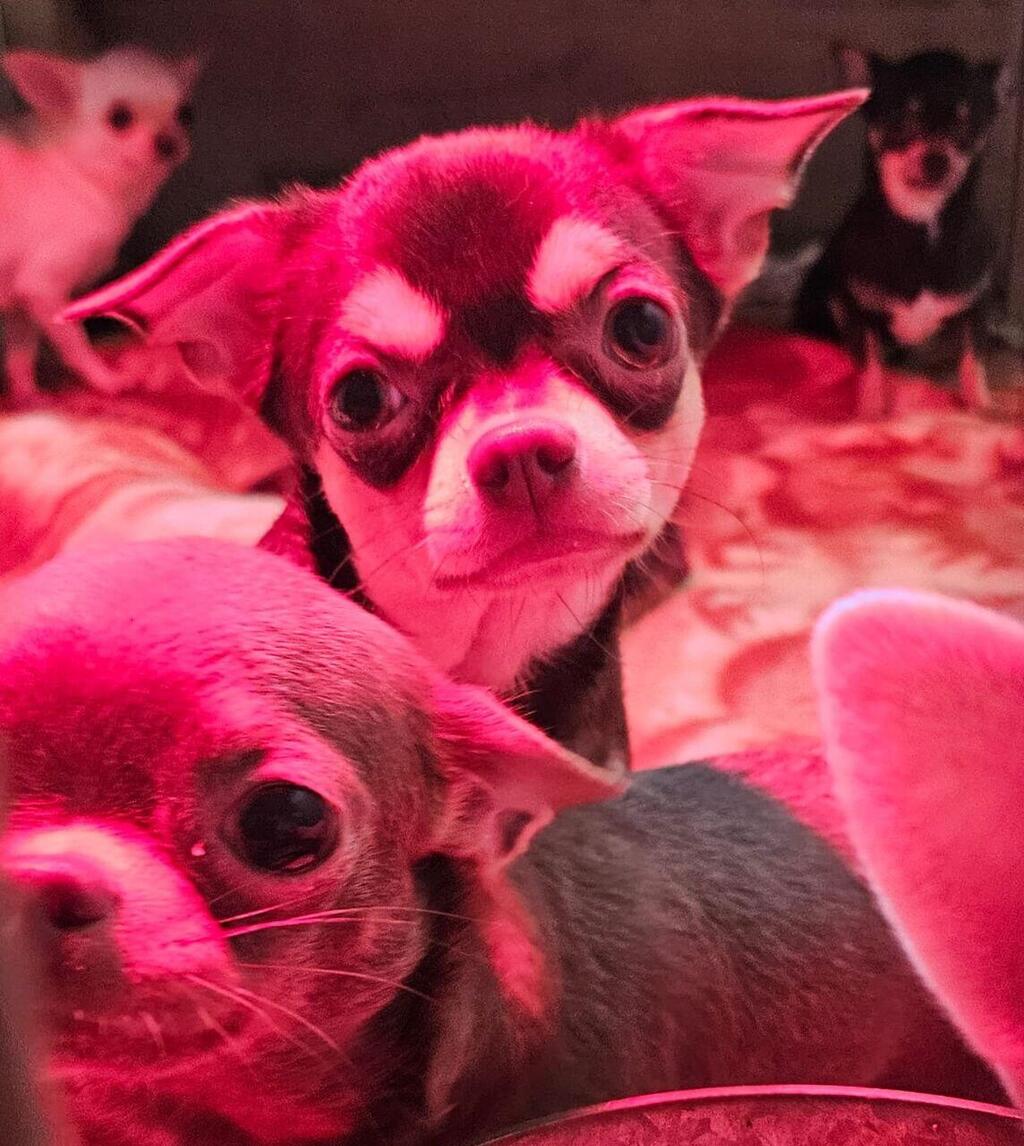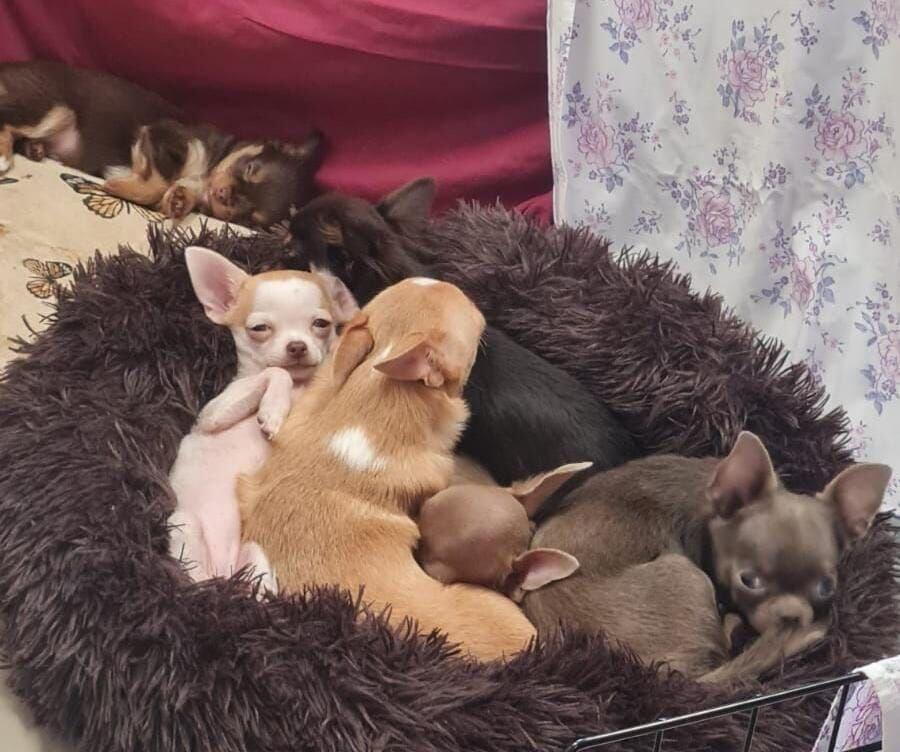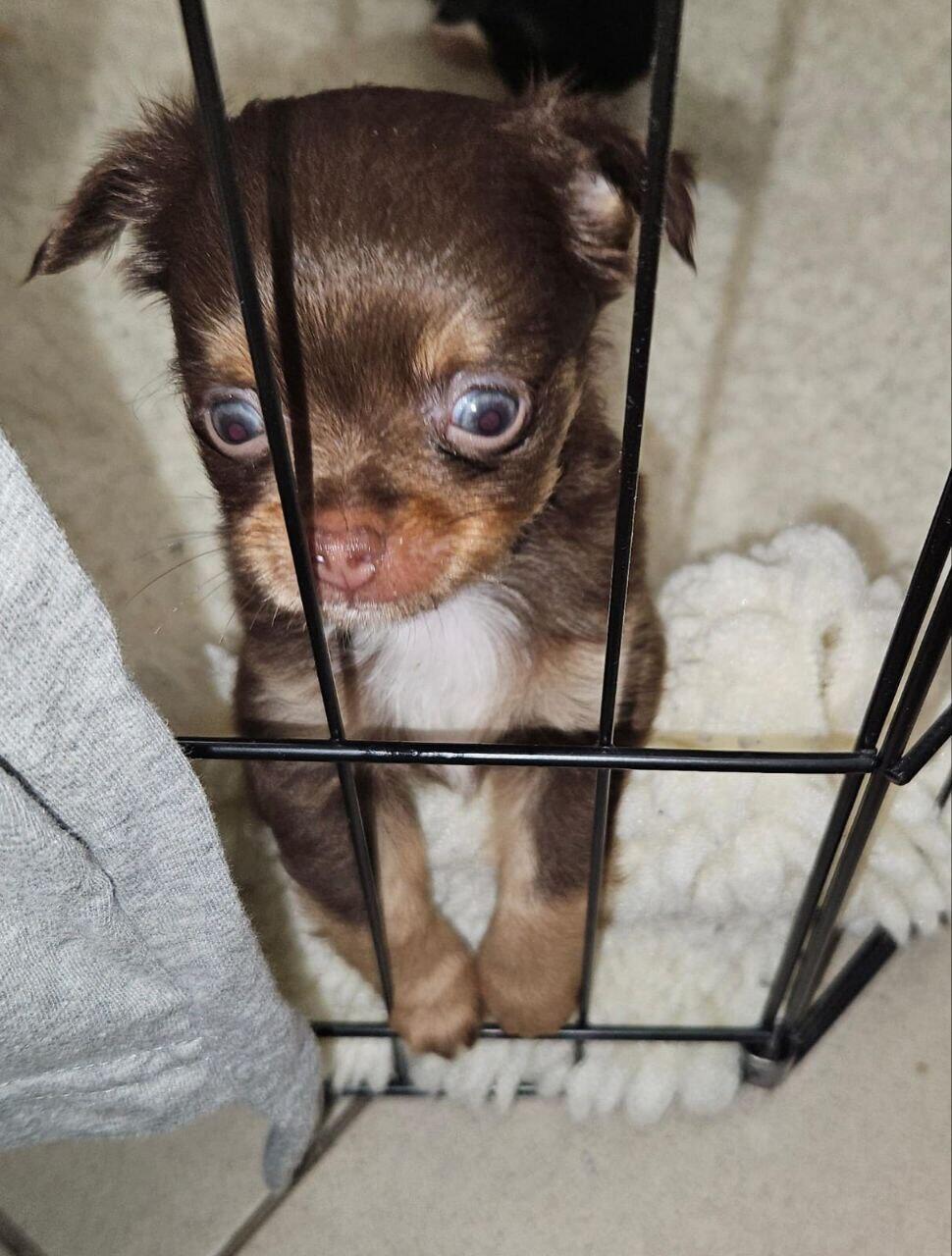Getting your Trinity Audio player ready...
Forty-three Chihuahuas, found in poor health in a filthy apartment in Ashdod, were rescued and transferred to a shelter for medical treatment in a joint operation by the Ashdod Municipality and Agriculture Ministry. The tenant appealed to a court to get the dogs back, but her request was denied.
In August 2023, a complaint was received by the Agriculture Ministry about a Chihuahua trade operation out of an apartment in Ashdod, where sanitary conditions were poor. However, the tenant did not cooperate with inspectors. In November, the city filed a request for a warrant to search the apartment, and about a month later, inspectors arrived and were confronted with the harsh conditions.
43 neglected Chihuahua dogs rescued from Ashdod apartment
"The conditions in the apartment were appalling and harsh, below the minimum required by the Animal Welfare Act," reported Dr. Danit Cohen, a veterinarian at the Ashdod Municipality.
"Expired vaccines and medications were found in her refrigerator. The dogs were not vaccinated against rabies. She refused to cooperate when we asked her to help us take the dogs to a shelter, grabbing one of the dogs and throwing it at me in anger."
Dr. Cohen said during a hearing at the Ashdod Magistrate's Court that this was a case of long-term neglect, characterized by unsuitable food, deprivation of sunlight, denial of necessary medical treatment, breeding of dogs with a history of cesarean surgeries endangering their lives and preventing any natural activity essential for an animal's wellbeing.
Additionally, the overcrowding of 43 dogs in the same space without an exposed floor also constitutes an offense under the Animal Welfare Act. Dr. Cohen further described the dire conditions: the dogs were trapped under piles of equipment, garbage and excrement in the house, with massive amounts of insects and a strong ammonia odor in the air that burns the eyes and respiratory tract, placing the dogs in life-threatening danger.
Amid the court discussion, the tenant interrupted the veterinarian, claiming these allegations were lies and that the dogs were cruelly taken from her. Dr. Cohen added that a municipal inspection found moldy food mixed with feces, puppies without proper food, exposed garbage bins and exposed electrical wires. The veterinarian noted, "The dogs are afraid to go outside into the sunlight. They are scared of human contact."
Today, the dogs receive intensive daily care. One dog had to undergo emergency surgery but, regrettably, did not survive. Additionally, the municipality brought in a trainer to work with them and acclimate them to normal life.
Locals pleaded with the municipality to address the breeding operation, stating in a letter to the local authority that they have suffered from the situation for five years, and that the tenant's hoarding of trash has led to a pest problem, including mice and cockroaches emerging from her apartment. "We tried talking to the tenant several times, but there was no one to talk to," the neighbors said.
Judge Rivka Schwartz found that evidence presented showed substandard conditions in the breeding of the dogs, with no medical supervision and neglect of medical conditions requiring treatment and ignoring their wellbeing and living conditions, and that the evidence indicated the apartment served as an unauthorized Chihuahua breeding facility for commercial purposes.
The tenant requested the return of the dogs, but the judge denied the request, emphasizing that removing the dogs was necessary for their life-saving rescue from neglect and abuse.
"If the dogs were returned, there is a serious and tangible concern that an offense according to the Animal Welfare Act would be committed. The dogs suffered unjustifiably while in her apartment," the judge wrote.
The Ashdod Municipality welcomed the court's decision, noting that the removal of the dogs was made possible through cooperation with the Agriculture Ministry. The 43 Chihuahuas are now in a shelter where they receive the vaccinations and nutrition they need.


